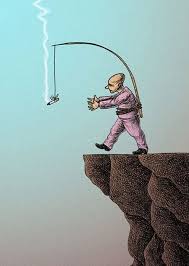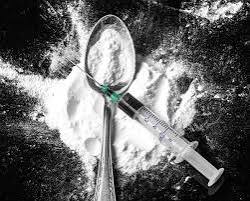drugs

The production and trafficking of drugs, especially opium and heroin, is one of the biggest problems in Afghanistan, which has wide-ranging effects on the society, economy and security of the country. This issue has become a serious challenge for several major reasons:
-
Informal Economy: Drug production constitutes a significant part of Afghanistan’s informal economy. Many farmers turn to poppy cultivation due to poverty and lack of other job opportunities, because its cultivation is more profitable than other agricultural crops.
-
Financing of terrorist groups: The income from drug production and trafficking is an important source for financing terrorist and insurgent groups such as the Taliban. These groups use these revenues to purchase weapons and meet their operational needs.
-
Crime: Drug trafficking increases organized crime and corruption in government and security institutions. Drug trafficking networks influence the country’s legal and executive system by using bribes and threats.
-
Social and health problems: Drug use inside the country is also a serious problem. The increase in the number of drug addicts leads to health and social problems and puts pressure on the healthcare system.
-
Weakening of agricultural development: Focusing on poppy cultivation instead of legal agricultural products affects sustainable agricultural development and food security of the country. This problem hinders economic growth and improving the livelihood of farmers.
-
Environmental pollution: Drug production using dangerous chemicals and unsustainable agricultural methods leads to soil and water pollution and destroys the environment.
Solving the drug problem in Afghanistan requires a multilateral approach that includes measures such as:
- Creating alternative employment opportunities: Developing alternative agricultural programs and creating other economic opportunities for farmers in order to reduce dependence on poppy cultivation.
- Increasing international cooperation: Strengthening international cooperation in the field of combating drug trafficking and providing the necessary resources for the development and reconstruction of Afghanistan.
- Strengthening of government institutions: Fighting corruption and strengthening executive and judicial institutions to effectively deal with drug traffickers.
- Treatment and prevention programs: Developing addiction treatment and prevention programs and providing health and social services to addicts

Harms of drugs
Drugs have devastating and widespread effects on individuals, families and communities. These effects can be physical, psychological, social and economic. Below are some of these effects:
physical effects
- Physical health: Drug use can lead to serious damage to various body organs such as the heart, liver, kidneys and lungs. Drugs such as heroin and cocaine can quickly lead to physical addiction, and long-term use can cause chronic diseases and premature death.
- Infectious diseases: Using contaminated syringes to inject drugs can increase the risk of contracting infectious diseases such as HIV/AIDS and hepatitis.
- Accidental injuries: Drug use can reduce alertness and motor abilities, which increases the risk of accidents and physical injuries.
Psychological effects
- Mental disorders: Narcotics can cause or worsen mental disorders such as depression, anxiety, schizophrenia, and psychosis.
- Cognitive disorders: Long-term use of drugs can reduce cognitive abilities such as memory, concentration and decision-making.
Social effects
- Family and social relationships: Drug addiction can destroy family and social relationships. Many addicts experience family problems, divorce, disconnection from friends and social isolation.
- Crime and Crime: Addicts may commit crimes such as theft, drug trafficking and violence to finance their addiction.
- Unemployment and Homelessness: Drug addiction can reduce a person’s ability to maintain a job and lead to unemployment and homelessness.
Economic effects
- Treatment costs: The treatment of addiction and diseases related to drug use imposes a lot of costs on the health system and families.
- Decreasing productivity: Drug addiction reduces the productivity of people in the workplace and increases absenteeism and decreases performance.
- Social costs: Drug-related crime and law enforcement costs to combat drug trafficking and drug use impose a heavy economic burden on communities.
Conclusion
Drugs not only harm people’s physical and mental health, but also have destructive effects on family, social and economic relationships. Fighting this problem requires extensive international cooperation, education and awareness, and providing treatment and support services to affected people.